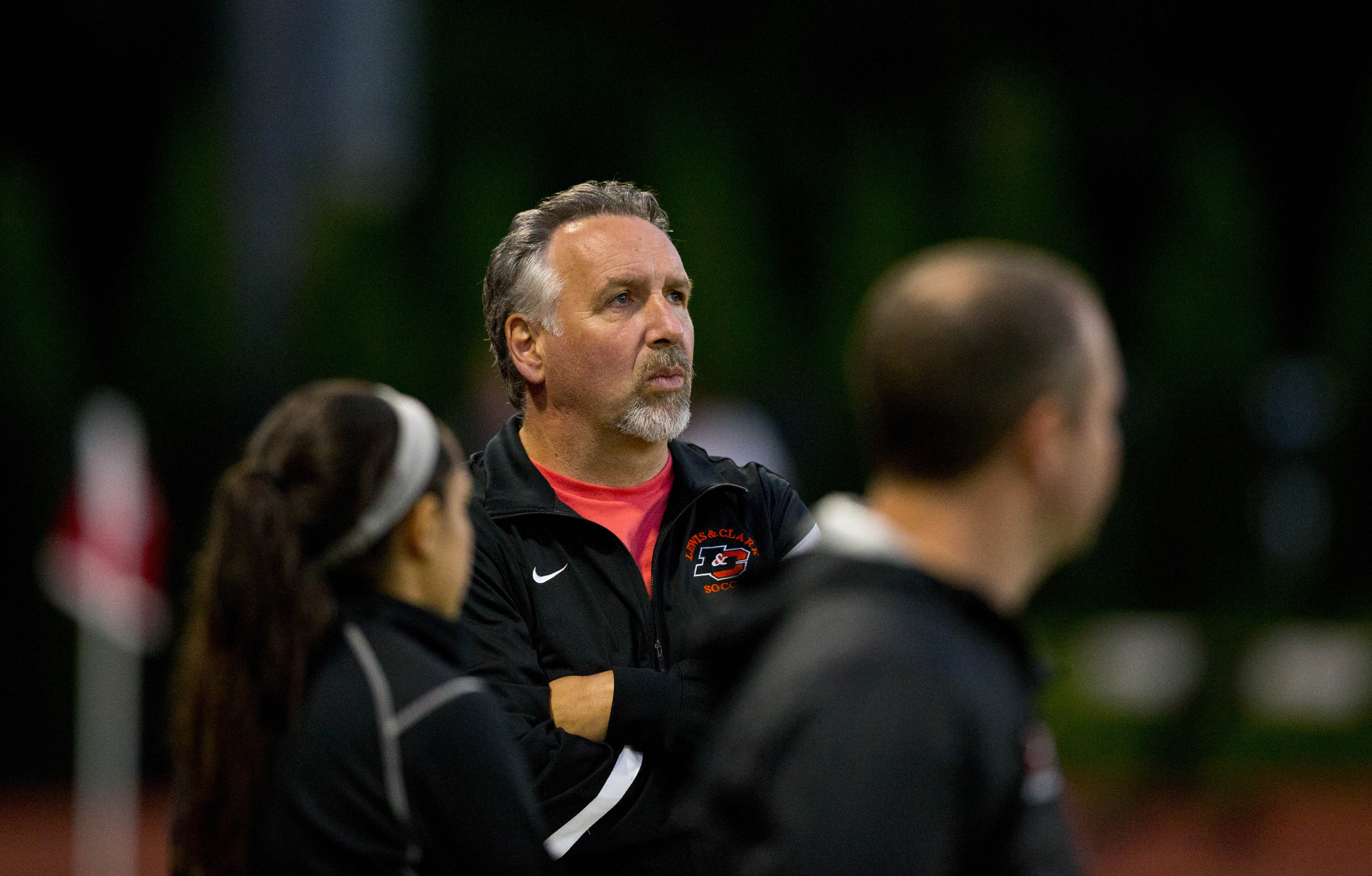
An interview with Soccer’s Head Coach, Jim Tursi
By CARLY CHELOVITZ
I interviewed Jim Tursi, our women’s soccer coach, on his transition from playing soccer to coaching it. Originally from Portland, Oregon, he played Division I soccer at The University of Portland and has coached soccer for the last 30 years.
What does a typical day as a women’s Division III soccer coach look like during the season?
Tursi: There is a lot of teaching involved in DIII. You don’t have a lot of time with the kids due to class and everything else, so you are very limited to what you can do. You have 28 kids, and you’re trying to teach them how to play in defensive situations; there’s really just a lot of teaching going on. It can take almost a year or two for the players to re-understand what you want done.
Did you grow up playing soccer? How did it play a role in your younger life?
Tursi: I did. I was very fortunate to play at a high level. I played for the U.S. Olympic team when I was 16, but we boycotted the Moscow Olympics that year. It was an important part of my life as a young person. Soccer came very easily to me and I was very successful at it.
Why did you decide to make the transition from athlete to coach?
Tursi: I realized that one year of professional soccer was enough for me. I wanted to stay in the sport, and coaching was the next best thing. I didn’t want to travel overseas to play professionally and I didn’t feel like I had the desire or work ethic that was necessary to be a player. I had other interests, one of which was to coach. I just seemed to enjoy that. The daily grind of keeping in shape as an athlete wasn’t of interest to me anymore.
What has been the most prominent difference between being a soccer player and a soccer coach?
Tursi: I know what I get out of playing, there’s very tangible things such as team success, personal success and you are in control of it. As a coach, my satisfaction comes from watching a kid progress from something he cannot do, and believe he cannot do, to being able do the thing he thought he could never do. The joy I get from being a coach and watching moments like those happen are much different from the joy I got when I was a player. I played forward, so my position was more or less to be the ball hog and make the goals. As a coach, you can’t be that way. Every kid is different, and what you say to each one has to be said in a way that will affect them.
Was there any part of this transition that was particularly difficult?
Tursi: When I started off, I was a high school boy’s soccer coach. I had no interest in coaching girls, probably because I hadn’t coached them before. When I was 24, an opportunity came up with my alma mater, the University of Portland, to coach the women’s team. I instantly fell in love with the response I got from the women compared to the men. They were willing to try what you asked them to do, whereas the men would claim that they already knew what they were doing. I got more satisfaction from watching the females develop as players than the males.
Did your career as an athlete teach you how to be a successful coach?
Tursi: I had some coaches that I did not like, coaches that I thought made my fellow players and I worse. After seeing that side of it, I realized that if I treated a player with respect, but still pushed them in the right way to do the things they didn’t want to do, that they would be successful. As a player, I learned from having many different coaches, some good and some bad.
Could you give us an overview of the upcoming season? Do you have any particular goals for the women’s team this year?
Tursi: We started off well, this was the first time ever in school history that the women’s soccer team went 4-0 pre-season. The team here has been with me for a long time, so we’ve been building for this moment, for the chance to win the conference championship. We will have a run at it this year. It’s a very different conference, but we are prepared and have the talent to be successful. Now what does that mean, successful? We will be successful no matter what, I know that. Winning a conference title in our conference is very tough, but that is our goal.
Subscribe to the Mossy Log Newsletter
Stay up to date with the goings-on at Lewis & Clark! Get the top stories or your favorite section delivered to your inbox whenever we release a new issue.

Leave a Reply